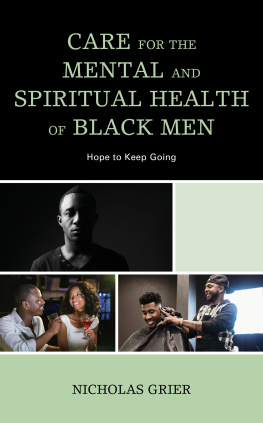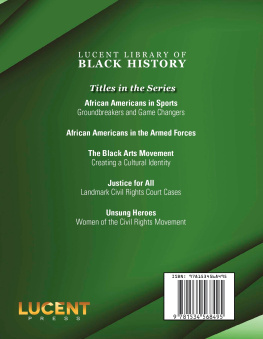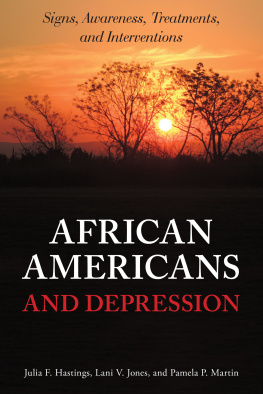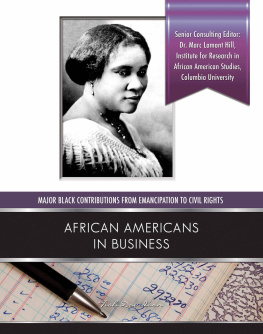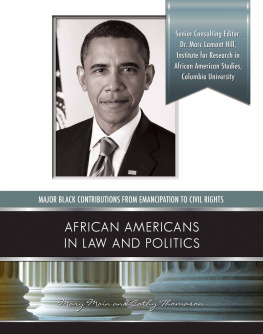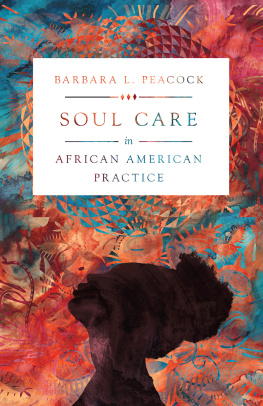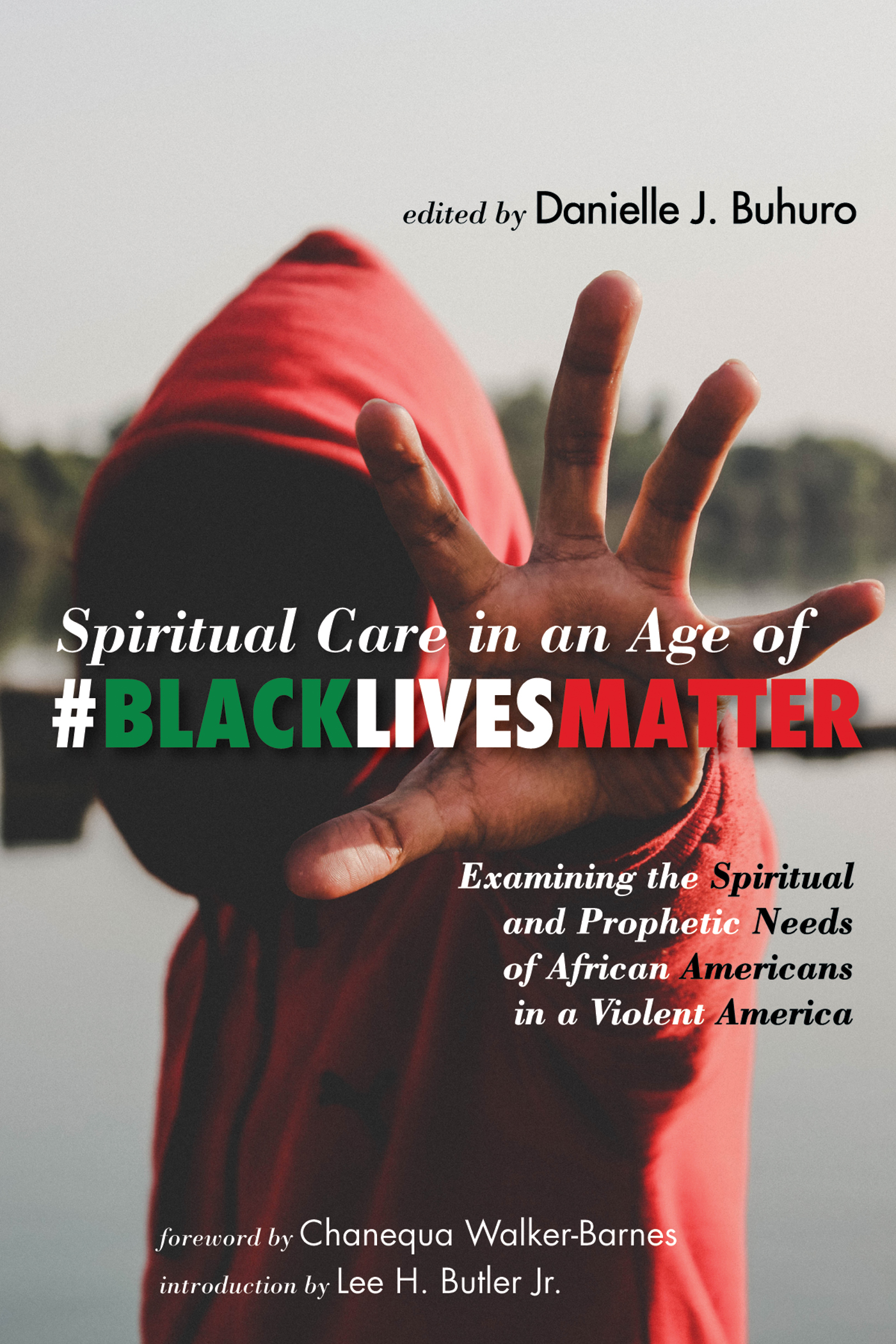Examining the Spiritual and Prophetic Needs of African Americans in a Violent America
edited by Danielle J. Buhuro
introduction by Lee H. Butler Jr.
Foreword
Chanequa Walker-Barnes
S omething was happening in Saint Louis. My social media connections to racial justice activists across the country had my Twitter and Facebook feeds lighting up. I started digging, searching first for Saint Louis, and then for Ferguson, swiping my screen down to refresh the feed repeatedly. Eventually I came across the threads of a few people who seemed to be on the scene. A local rapper using the Twitter handle @theepharoah, had witnessed the shooting outside his apartment window and was live-tweeting: I JUST SAW SOMEONE DIE OMFG. Police had shot a Black teenager. They had left his body on the street in plain view, unidentified until a woman made her way toward the crowd, looking for the grandson who had been on his way to see her. Finally, there was a name: Michael Brown.
The next part of the story was remarkable: the people stayed with the body. Quietly, they watched as the coroners office finally showed up at the scene. Then, when Michaels body had been loaded into the coroners van, they followed, walking en masse to the police department. There too they waited calmly for someone to come outside and explain why Brown had been shot when, as the word had already spread, his hands had been up. Watching the photos and videos that were being spread via Twitter, I recognized their somber poses, their insistence on staying with the body, their demand for accountability for a life lost. It was a historic African American mourning ritual.
Dying and mourning have always been serious business among people of African descent. The sacredness attached to death and funerals is a remnant of African cultures that survived the transatlantic slave trade, European colonization, and cultural assimilation. Thus, West African traditions of honoring the family and the deceased with elaborate memorials and visitation continue to be important rituals among Blacks in the United States. In many Black families, the time between death and burial may extend up to two weeks now to raise the funds needed to provide a befitting memorial or to allow geographically dispersed relatives the time needed to make travel arrangements to pay their respects. In predominantly Black neighborhoods across the country, people still observe the tradition of pulling over to let funeral processions pass.
A particularly relevant aspect of African American mourning rituals is the importance of howand by whombodies are handled in death. In Passed On, Karla Holloway notes the significance of the question, whos got the body? in African American mourning and burial practices. Whos got the body? is the question that my older relatives continue to ask when someone has died. Even more than Sunday morning worship, death in America remains highly racialized. African Americans have a long distrust of White morticians and funeral homes, and thus overwhelmingly turn to Black funeral homes for burial services. Whos got the body? is shorthand for, Who will be handling the persons body in this last ritual? Will they treat them with dignity and respect, regardless of the persons standing in the world? Will they approach their embalming, dressing, and positioning as a sacred, intimate act? Will they take care to make sure that the deceased is presented in a way that honors the best of the person and their family?
Asking whos got the body? is also a way of finding out where and when people can sit with the body and the family of the deceased prior to the funeral, to ensure that they are not left alone.
As the crowd returned to the Ferguson Police Department the day after the shooting and waited for an official word, they seemed to be saying, Weve got the body. We will make sure that Big Mike is treated with dignity and respect. We will make sure that the police handles this case in a sacred way that honors the best of him and his family. We will make sure that his family is not alone. They were doing the different kind of memorializing that follows death that occurs from racialized violence against Black bodies, one that requires public lament. Quickly, though, it became clear that Missouri officials interpreted their grief as threatening, their mourning as rebellion. Instead of compassion, they stonewalled. Instead of assurances of accountability, they provided militarized police and unreasonably instituted curfews. I recognized the meaning behind the official responses as easily as I had recognized the crowds: they were fanning the flames of an already tense scene into a riot.
It was August 9, 2014 , my seventeenth wedding anniversary. Normally, I would have been celebrating and deliberately avoiding all media. But it was not a normal year. Five weeks earlier, I had been diagnosed with breast cancer. Still recovering from a hysterectomy, I would be undergoing a double mastectomy in four days. Later that evening, I would gingerly get dressed and make my way to dinner. But at home, there was little more that I could do than watch as the shooting and subsequent protests unfolded in Ferguson, and as many of my ministry friends made their way to Missouri to support the protestors. I felt helpless. I wanted to join this historic movement in voice and in action. Eventually, I figured out a role befitting both my physical limitations and my expertise as a theologically trained clinical psychologist. I could amplify what was happening in Ferguson to my clergy-filled network and encourage them to act within their own contexts. I could respond to the protestors requests for financial assistance and emergency supplies to sustain their work. And through the power of social media, I could reach out directly to activists on the ground to remind them to care for themselves in the thick of the battle, and to let them know that I was praying for them by name.
It turns out that I was not alone in my struggle to figure out my role. In Ferguson and later in Baltimore, social media has also provided a birds-eye view on the struggle that Christian clergy have had in discerning the nature and scope of our role in the contemporary Black Life Movement. Unlike its twentieth-century forebears, this modern civil rights movement is not dependent upon charismatic, highly educated, male religious leaders. Indeed, its leadership is largely composed of a diverse array of millennialsthose born between the early 1980 s and the mid- 1990 s. The movement that began in Ferguson has been birthed and sustained through the labor of young African Americans who know firsthand what it means to be profiled, both by law enforcement and by middle-class Black churchgoers. They tend to value equality and relationality over hierarchy and protocol; they are distrustful of institutions and those who wield institutional power; they eschew the politics of respectability; and they reject the idea that leadership is the birthright of a particular gender identity, sexual orientation, ability group, social class, or generation.
Clergy stumbled over how best to approach this group. Some grew frustrated at the lack of a clearly identifiable spokesperson and lectured the young activists about their need to establish structure and hierarchy, failing to recognize the problems embedded in such patriarchal understandings of leadership. Others expected that as in prior movements, the young activists would do the groundwork of organizing protests and then move to the background to allow older, more prestigious, and properly religiously credentialed leaders to assume the role of spokespeople. Some learned the hard way that these young activists would not hesitate to boo internationally recognized civil rights veterans offstage for attempting to use protest events to raise money for their own organizations. Neither would they hesitate to drop a shame-inducing freestyle in the face of prominent clergy who they believed were using community organizing gatherings to further their own political and ecclesial ambitions.


